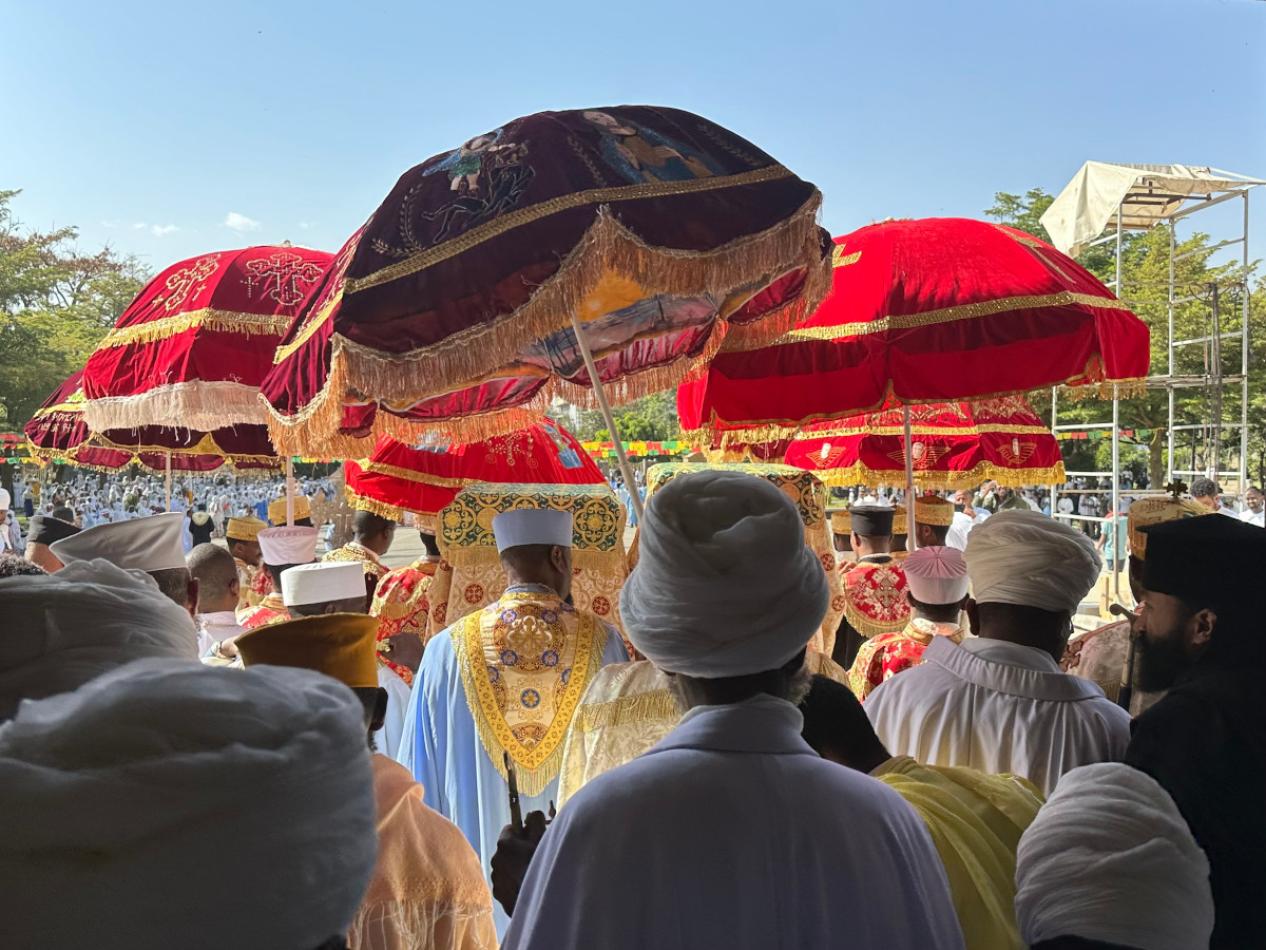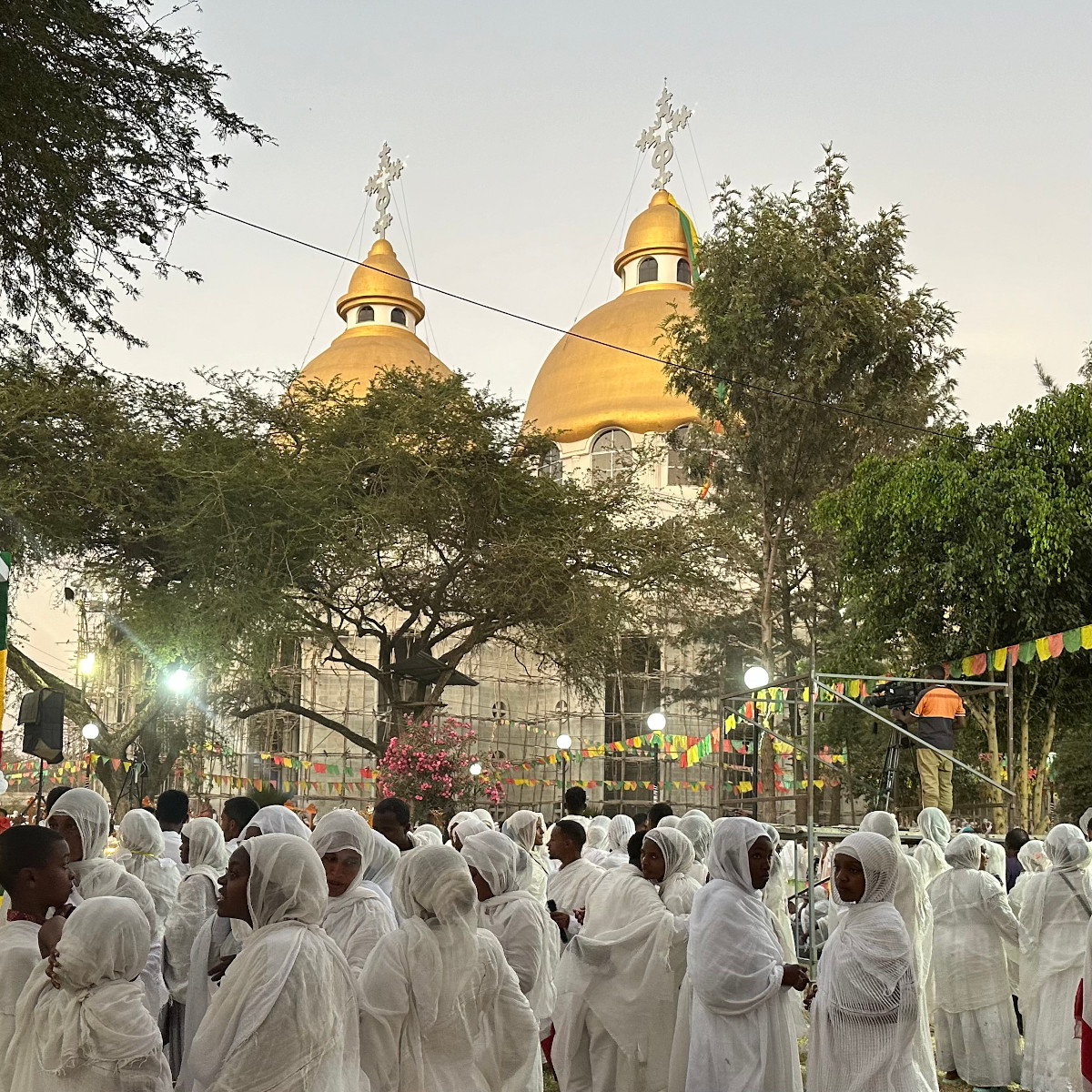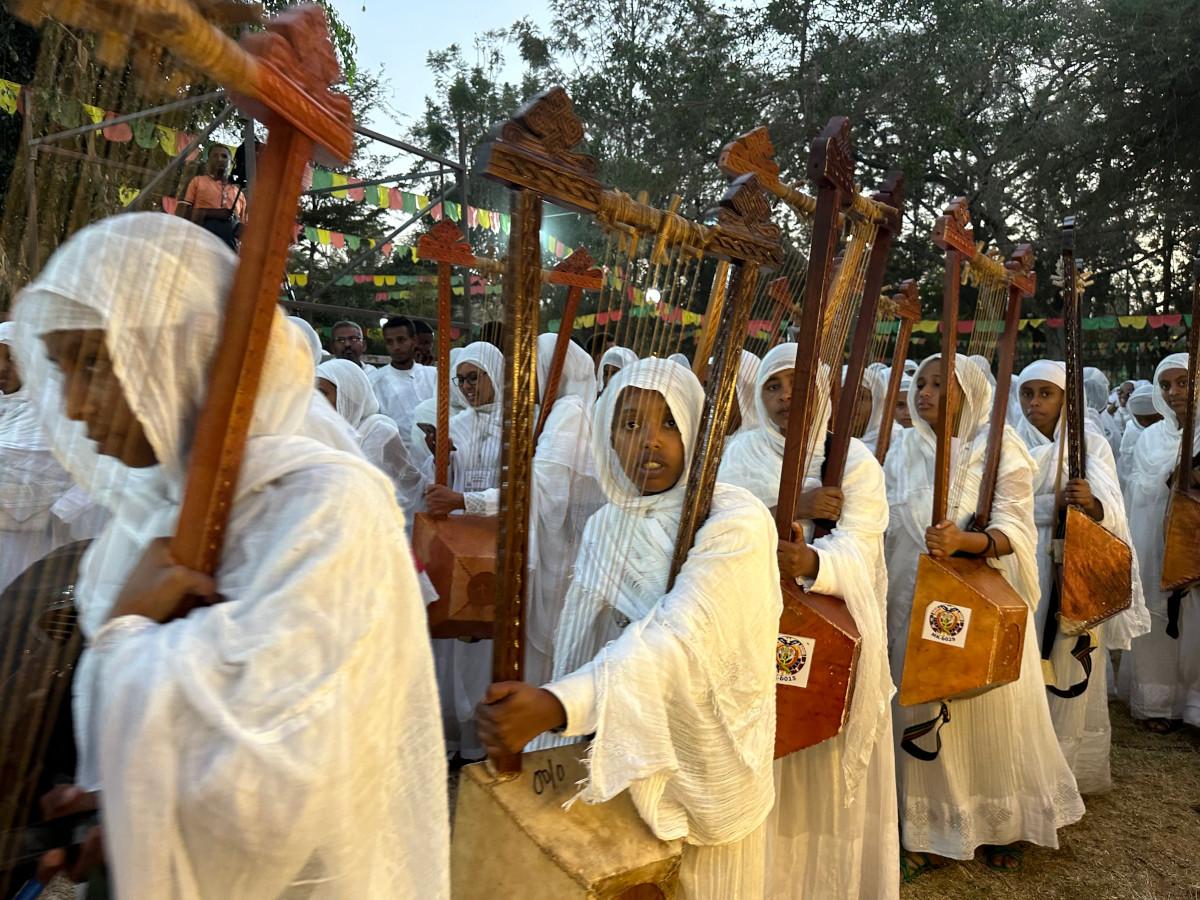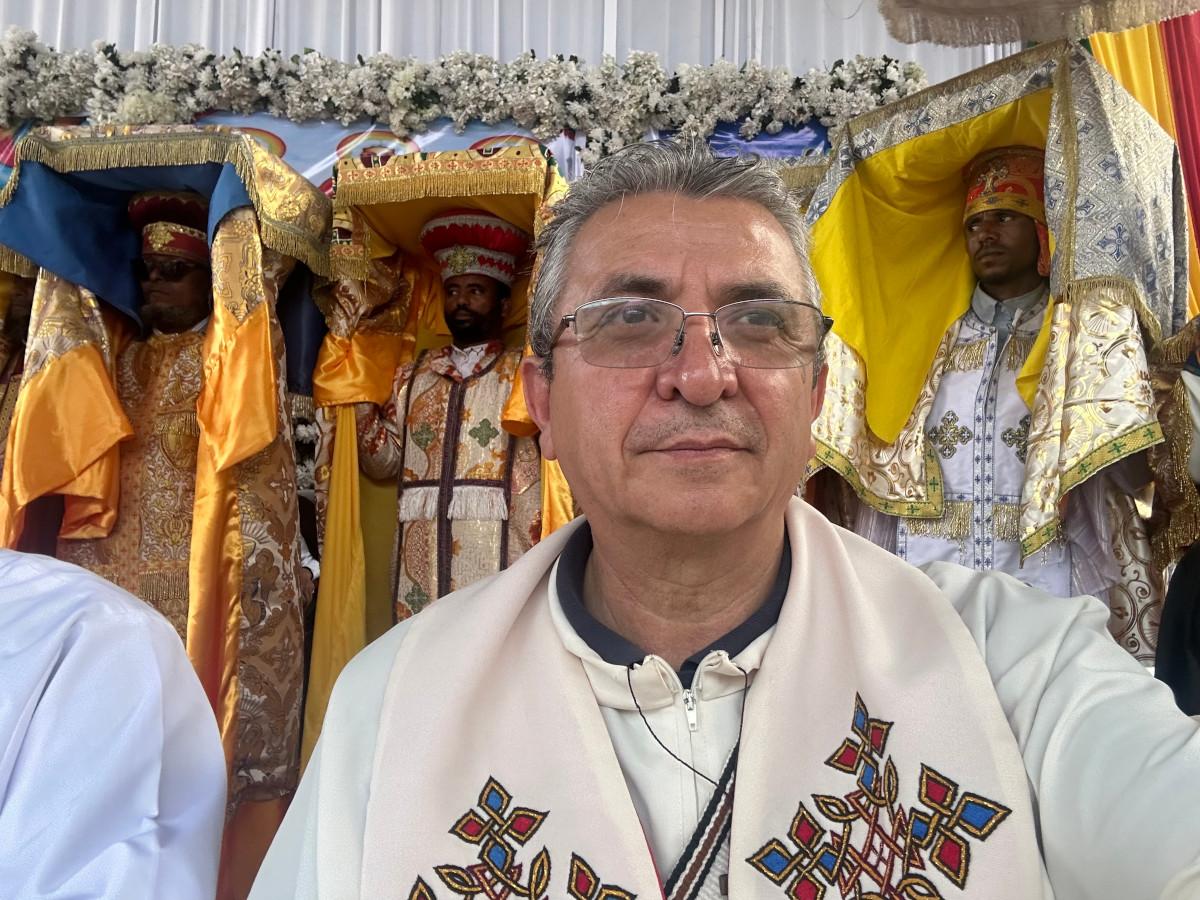Daniel Comboni
Comboni Missionaries
Institutional area
Other links
Newsletter
Tuesday, January 21, 2025
The celebration of the Baptism of Jesus is one of the most important feasts of the Ethiopian Orthodox Church. Every January 19 (or 20 in leap year), corresponding to the eleventh day of Terr in the Ge'ez calendar, thousands of Ethiopian Orthodox faithful gather in their churches to commemorate the baptism of Jesus. This celebration is so unique that UNESCO has recognized and inscribed Timket, intangible cultural heritage of humanity.
In addition to participating in their colorful celebration, some members of the Catholic Church also join them on Saturday in their procession on the eve of the feast to pray with them and express their sincere communion with them.
This is one of the events in which our Comboni missionary, Fr. Juan Antonio González Núñez, the present Apostolic Administrator in the vicariate of Hawassa, always participates with deep devotion and great desire. This year was no exception and, as he did last year, he invited me to go with him. As soon as we arrived at the Orthodox cathedral, the bishop and some of the priests welcomed us warmly, even calling us by our names, showing the fraternity and friendship that already exists in us and between both churches.
Before arriving at its cathedral, we commented on the way that, interestingly, it was the first day of Prayer for the Unity of all Christians and the fact of participating in this important religious event for the Orthodox Church, also gave it a real and concrete ecumenical sense, as the church suggests every Catholic to do at the local level.
The feast of Timket, or Baptism, is one of the oldest and most important religious festivals celebrated in Ethiopia. In the ritual, the Tabot, a sacred replica of the Covenanted Ark that houses the Ten Commandments, is covered with a colorful cloth, and carried by its priests to a nearby water source.
In large cities, as is our case and where there is also a cathedral, many thousands of people dressed in white robes gather to chant spiritual songs and chants. It is very impressive to hear along the way and during the procession, the hundreds of voices singing at the same time and the sound of their clapping. It is also striking to see so many men and women prostrated to the ground in front of the Tabot, to pay homage and glory to God.
Once gathered in front of the pool of water near the cathedral, the master of ceremonies introduced Father Juan and me to the whole assembly and thanked God for participating with them. The bishop did the same before his 30-minute message. Once he finished, he dismissed the congregation with brief prayers and then invited them not to miss the next day, when the water will be blessed, and each participant will be sprinkled or doused thoroughly with water from buckets over them. They do this intentionally to help them remember, in an obvious way, not only Jesus' baptism, but also their own, their rebirth in spirit into this world.
This celebration is so unique that UNESCO has recognized and inscribed Timket, intangible cultural heritage of humanity. While we were in the procession, Father Yoseph Abebe did not miss the opportunity to remind me of this when I told him that I was honored to be allowed to walk with them in such a beautiful ceremony.
At the end, as Fr. Juan and I walked back home, still wearing our priestly vestments, Fr. Juan commented that, despite the growing influence of Islam and evangelical churches in the country, the traditional Orthodox Church remains strong. That’s true and they get credit for it.
I pray for all members of the Orthodox Church that they may always remain strong in their faith, witnessing to us their love for God. I also pray to God that we, all the missionaries of the world, may be builders of bridges of unity between all the different Christian churches.
Fr. Pedro Pablo Hernández
City of Hawassa / Ethiopia







